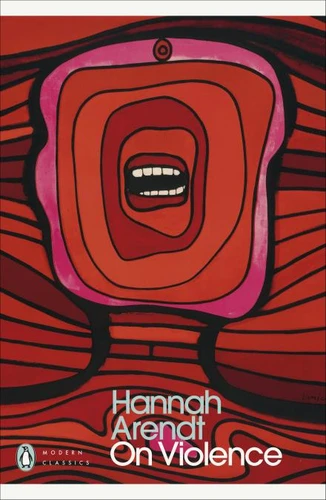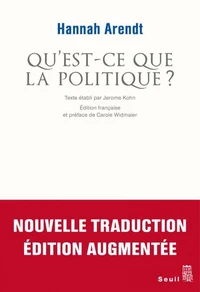Hannah Arendt (1906-1975) est considérée comme l'une des plus grandes philosophes du XXe siècle. On compte parmi ses grands textes Les Origines du totalitarisme, L'Humaine Condition et, plus récemment, Ecrits juifs.
On Violence
Par : ,Formats :
Disponible dans votre compte client Decitre ou Furet du Nord dès validation de votre commande. Le format ePub protégé est :
- Compatible avec une lecture sur My Vivlio (smartphone, tablette, ordinateur)
- Compatible avec une lecture sur liseuses Vivlio
- Pour les liseuses autres que Vivlio, vous devez utiliser le logiciel Adobe Digital Edition. Non compatible avec la lecture sur les liseuses Kindle, Remarkable et Sony
- Non compatible avec un achat hors France métropolitaine
 , qui est-ce ?
, qui est-ce ?Notre partenaire de plateforme de lecture numérique où vous retrouverez l'ensemble de vos ebooks gratuitement
Pour en savoir plus sur nos ebooks, consultez notre aide en ligne ici
- Nombre de pages80
- FormatePub
- ISBN978-1-80206-234-2
- EAN9781802062342
- Date de parution30/11/2023
- Protection num.Adobe DRM
- Infos supplémentairesepub
- ÉditeurPenguin
Résumé
From Hannah Arendt, the author of The Origins of Totalitarianism, her influential essay examining the relationship between violence, power, war and politics'Violence can destroy power; it is utterly incapable of creating it'Why has violence played such a significant role in human history? Written in 1970, with the Holocaust and Hiroshima still fresh in recent memory, war in Vietnam raging and the streets of Europe and America exploding into student protest, Hannah Arendt's seminal work dissects violence in the twentieth century: its nature and causes, its relationship with politics and war, its role in the modern age.
Arendt warns against the glamorization of violence by revolutionary causes, and argues that true, lasting power can never grow 'out of the barrel of a gun'.'Incisive, deeply probing, written with clarity and grace, it provides an ideal framework for understanding the turbulence of our times' The NationWith an introduction by Arendt expert, Lyndsey Stonebridge, Professor of Humanities and Human Rights at the University of Birmingham.
Arendt warns against the glamorization of violence by revolutionary causes, and argues that true, lasting power can never grow 'out of the barrel of a gun'.'Incisive, deeply probing, written with clarity and grace, it provides an ideal framework for understanding the turbulence of our times' The NationWith an introduction by Arendt expert, Lyndsey Stonebridge, Professor of Humanities and Human Rights at the University of Birmingham.
From Hannah Arendt, the author of The Origins of Totalitarianism, her influential essay examining the relationship between violence, power, war and politics'Violence can destroy power; it is utterly incapable of creating it'Why has violence played such a significant role in human history? Written in 1970, with the Holocaust and Hiroshima still fresh in recent memory, war in Vietnam raging and the streets of Europe and America exploding into student protest, Hannah Arendt's seminal work dissects violence in the twentieth century: its nature and causes, its relationship with politics and war, its role in the modern age.
Arendt warns against the glamorization of violence by revolutionary causes, and argues that true, lasting power can never grow 'out of the barrel of a gun'.'Incisive, deeply probing, written with clarity and grace, it provides an ideal framework for understanding the turbulence of our times' The NationWith an introduction by Arendt expert, Lyndsey Stonebridge, Professor of Humanities and Human Rights at the University of Birmingham.
Arendt warns against the glamorization of violence by revolutionary causes, and argues that true, lasting power can never grow 'out of the barrel of a gun'.'Incisive, deeply probing, written with clarity and grace, it provides an ideal framework for understanding the turbulence of our times' The NationWith an introduction by Arendt expert, Lyndsey Stonebridge, Professor of Humanities and Human Rights at the University of Birmingham.























